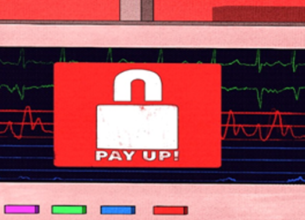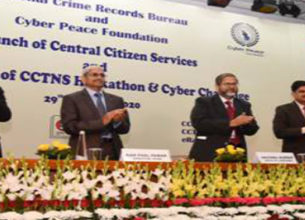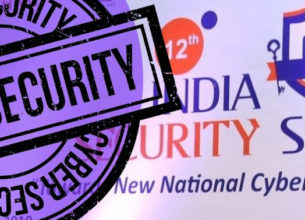ZOOM NOT A SAFE PLATFORM, SAYS MHA
18, Apr 2020

Prelims level : Cyber Space Challenges
Mains level : GS-III Awareness in the fields of IT, Space, Computers, robotics, Nano technology, Bio-Technology and Issues Relating to Intellectual Property Rights.
Why in News?
- Recently, the Ministry of Home Affairs (MHA) has issued an advisory that Zoom video conference is not a safe platform.
What is the Issue?
- Zoom has seen an exponential rise in usage in India as office-goers remain at home due to the lockdown, imposed to curb the Covid-19 pandemic.
- Over 90,000 schools across 20 countries have started using it regularly.
- The maximum number of daily meeting participants of approximately 10 million at the end of December 2019 grew to more than 200 million daily meeting participants in March.
- It has been used extensively by everyone including the central and state ministers for official purposes and Conducting Meetings.
About Zoom:
- Zoom is a US-based video communication and videoconferencing platform.
- This Silicon Valley-based company appears to own three companies in China through which at least 700 employees were paid to develop Zoom’s software.
- This arrangement is apparently an effort at labour arbitrage in which Zoom can avoid paying US wages while selling to US customers, thus increasing their profit margin.
- However, this arrangement may make Zoom responsive to pressure from Chinese authorities.
- Reportedly, few calls made through the app are routed through servers in China.
Cautions made by CERT-IN:
- Earlier, the Computer Emergency Response Team, India (CERT-In) had also issued advisories cautioning on the use of Zoom for office meetings.
- CERT-IN is an organisation of the Ministry of Electronics and Information Technology, Government of India, with the objective of securing Indian cyberspace.
- It collects, analyses and disseminates information on cyber incidents, and also issues alerts on cyber security incidents.
- CERT-IN provides Incident Prevention and Response Services as well as Security Quality Management Services.
- It warned that the insecure usage of the platform may allow cyber criminals to access sensitive information such as meeting details and conversations giving rise to cyber frauds.
- It also highlighted multiple vulnerabilities which could allow an attacker to gain elevated privileges or obtain sensitive information.
Why Zoom is Not Safe?
- Citizen Lab, based at the University of Toronto, found significant weakness in Zoom’s encryption that protects meetings.
- It identified the transmission of meeting encryption keys through China.
- The lab has raised two primary concerns- geo-fencing and Meeting Encryption.
- Geo-fencing is a location-based service in which an app or other software uses GPS, RFID, Wi-Fi or cellular data to trigger a pre-programmed action when a mobile device or RFID tag enters or exits a virtual boundary set up around a geographical location, known as a geo-fence.
What is the Response from Zoom?
- Zoom Founder and CEO Eric S Yuan has apologised and assured the people that the privacy and security expectations would be taken care of.
- Zoom has added additional features such as placing a new security icon in the meeting controls, changing Zoom’s default settings and enhancing meeting password complexity, among others.
- It has also added that soon, account admins will have the ability to choose whether or not their data is routed through specific Data Center Regions.
Suggestions given by the Ministry:
- The users are suggested to set strong passwords and enable “waiting room” features so that call managers could have better control over the participants.
- Users should also avoid using personal meeting ID to host events and instead use randomly generated meeting IDs for each event.
- People using the app should not share meeting links on Public platforms.
Who deals with Cyber-crime Issues in India?
- Indian Cyber Crime Coordination Centre (I4C):
- The scheme to set up I4C was approved in October 2018, to deal with all types of cybercrimes in a comprehensive and coordinated manner.
- It has Seven Components:
- 1.National Cyber Crime Threat Analytics Unit
- 2.National Cyber Crime Reporting Portal
- 3.National Cyber Crime Training Centre
- 4.Cyber Crime Ecosystem Management Unit
- 5.National Cyber Crime Research and Innovation Centre
- 6.Cyber Crime Forensic Laboratory Ecosystem
- .7Platform for Joint Cyber Crime Investigation Team.
- Various States and Union Territories (UTs) have consented to set up Regional Cyber Crime Coordination Centres.
- This state-of-the-art Centre is located in New Delhi.
















